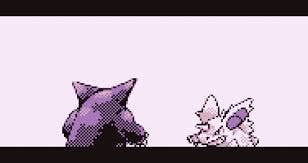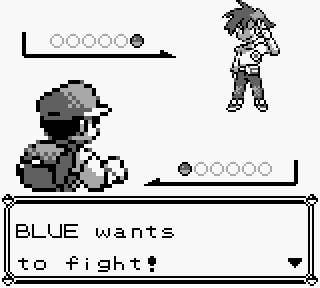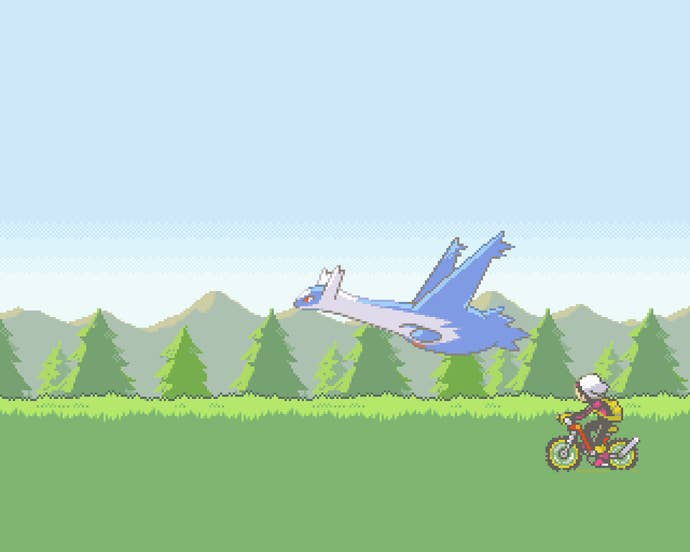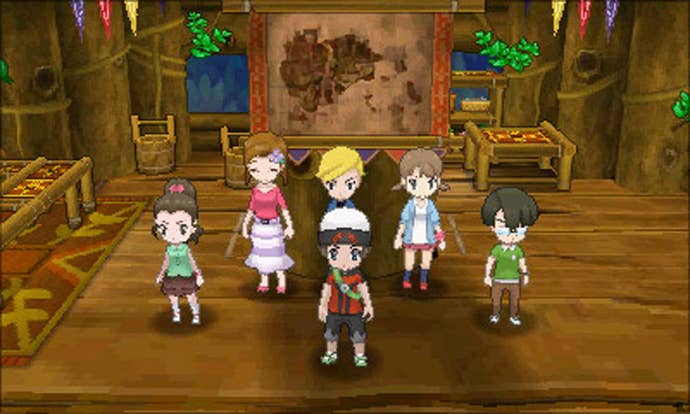Comfort Food Games: Pokémon
Kat delves into her ongoing appreciation for the seminal monster collecting series.
This article first appeared on USgamer, a partner publication of VG247. Some content, such as this article, has been migrated to VG247 for posterity after USgamer's closure - but it has not been edited or further vetted by the VG247 team.
Every few months, my relationship with Pokémon begins anew. I wander over to Smogon, start experimenting with some new builds, and eventually find myself hatching monsters while watching reruns of Archer.
The last time it happened was during PAX. In between appointments, I took on themed gyms run by cosplaying fans, making a bunch of friends in the process. I had so much fun that I was motivated to start raising monsters again, which carried me through the release of Omega Ruby and Alpha Sapphire. I haven't had as unique a gaming experience before or since.
The PAX Pokémon League is an example of one of the things that the series does best: it blurs the lines between reality and fantasy and makes you feel as if it's all real. To that it adds a sense of fun, nostalgia, and deep gameplay, spurring on a rabid community that is getting bigger all the time. Even now, as a semi-retired Pokémon Master, I find their enthusiasm infectious. And I can't help feeling affectionate toward the rather large menagerie of monsters that I've built up over the past decade.
picture
My personal history with the series stretches back to Christmas 1998, right around the time that it became a full-blown sensation. On a whim, I asked for it for Christmas; and to my everlasting surprising, my parents actually obliged.
My earliest memory is how big the world felt. My Charmander in tow, I strode out into the wilderness, my imagination filling in the gaps between the monochrome graphics and static sprites. I was blown away the first time I saw Brock's Onix. It may have only been a couple inches tall on my Game Boy screen, but it took up a ton of real estate, and it positively dwarfed my little Charmander.
I put hundreds of hours into Pokémon Red, eventually raising a team of level 100 monsters and filling my Pokedex. And yes, I watched the show, too. In fact, it was Pokémon that got me into anime, which in turn got me to study Japanese when I went to university a couple years later, putting me in position to meet my partner of 14 years.

It was in college that I picked up Pokémon again, this time falling headlong into the crazy world of competitive battling circa Pokémon Ruby and Sapphire, and so beginning the cycle that would become a big part of my gaming life for the next decade. Residing near the top of the heap of the then-nascent online battling circuit, I competed in tournaments and won leagues in the process delving deeper into Pokémon than I had ever gone before.

The Pokémon community in that era wasn't nearly as big as it was now, lacking as it did online trading and other tools, but it was just as active. The Pokémon board was the biggest game-specific community in IGN's forums, and it was there that I learned the ins and outs of training and strategy. With concepts like EVs being mostly unknown at the time, I came to feel like I was in an elite club, which is condescending and smug in retrospect, but also empowering. Fans of fighting games, real-time strategy, and MOBAs can tell you how exciting it is to feel like you've cracked the code. It's like being Neo at the end of The Matrix.
Over that period, I found that Pokémon goes much deeper than simple rock-paper-scissors strategy, and that it's quite possible to overcome seemingly unfavorable matchups with the right team. A well-constructed team can support itself with stat buffs, entry hazards like spikes, and other gambits, eventually maneuvering a foe into a corner from which they cannot escape. What's more, the strengths and weaknesses of an individual monster depend heavily on its stat distribution and traits, as well as its moveset. Some are meant to be tanks, others are offensive menaces, and still others can play a variety of roles, making them highly unpredictable.
Admittedly, I was never quite smart enough to tweak the stats and come up with character builds of my own, preferring to use already existing concepts in my team construction (a shortcoming that separated me from the true masters) . My specialty was in building unorthodox teams and using my knack for prediction to get the drop on my foes. I was obsessed with getting my team just right, constantly swapping monsters in and and out to find the perfect mix. On the few occasions where everything came together, I would feel a rush of satisfaction that wouldn't be equaled until I started tinkering with FIFA formations years later. It's a habit that persists to this day. With each successive generation, my main goal has been to find that one team—the perfect group of monsters comprising multiple generations that are also fun to use. Such teams are elusive, but well worth finding.
Around 2005, my interest in Pokémon battling flagged a bit, and I moved on to other interests. But the two years in which Pokémon dominated my gaming life has left me with a deep appreciation for the series. Going back to Pokémon is a bit like going home for me. My monsters are old friends who will never go away.

I've thought a lot about what makes Pokémon tick over the years. It's such an unassuming series, rightly criticized for its occasionally obtuse design decisions, of which the omission of trainer customization is just a recent example, and yet its seemingly timeless appeal has been replicated by only a few other games.
There's no one reason for its sustained dominance. You can credit its memorable art, its simple but deceptively deep mechanics, its broad range of things to do, and its pure marketing muscle. Game Freak, Nintendo, and the Pokémon Company have successfully parlayed a late '90s fad into a media empire unrivaled in gaming. They've even managed to keep the TV show going for nearly twenty years now, the first episode airing way back in 1997.
Beneath all the merchandising and brand management though, there remains a fundamentally pure core of gameplay. After all these years, it's still deeply satisfying to raise up a monster from nothing. One Charizard may not look that different from another, but there's never any doubt that its yours—a feeling accentuated by the ability to carry monsters from the GBA generation all the way to the Pokémon Omega Ruby and Alpha Sapphire remakes on the Nintendo 3DS. They play perfectly into our need to anthropomorphize and attach meaning to the world around us. My Infernape isn't just a bit of code; it's been with me since the days of Pokémon Heart Gold and Silver, serving as first a competitive centerpiece, then a sentimental favorite traveling companion as I've wandered through the Johto, Sinnoh, Unova, and Kalos regions.
I know of only a few games that can elicit that sort of emotion from me, most of them MMORPGs. One day, I suppose, Game Freak will hit the reset button, at which point I'll finally retire for good. But until that happens, it will be a world that I'm more than happy to visit again and again.

Ultimately, Pokémon means a lot of different things to a lot of different people. There are the people who attend the official tournaments, who min-max their monsters and teams in ways that I never even dreamed of back in the days of Ruby and Sapphire. There are the people who live only to build a "living" Pokedex, and others who seek out only the rarest of the rare shinies and event monsters. Pokémon has provided room for all these types of gamers, in some ways rivaling World of WarCraft in terms of the sheer number of things to do.
I don't always agree with Game Freak's approach to the series. I'd love for them to take a few risks, vary up the structure a bit more, and not adhere so strictly to in-game logic when putting together their feature set (again, case in point, the omission of character customization in ORAS). Power creep is another issue that's been a problem for a long time now, and while Game Freak has taken some steps to address it, they haven't done nearly enough, in some ways making it worse with god-like Mega Evolutions.
Fifteen years on though, I have deep respect for the way Game Freak has brought their world to life, carefully cultivating an environment in which Pokémon feels like a kind of alternate universe that you can visit at your leisure. The rabid devotion of the Pokémon community is a credit to the immersiveness of their own world. In one way or another, everyone feels like they have a stake in this wonderful universe that Game Freak has created.
For that reason, Pokémon will always be the most comfortable of my "comfort food games." And more than fifteen years later, the cycle continues.

